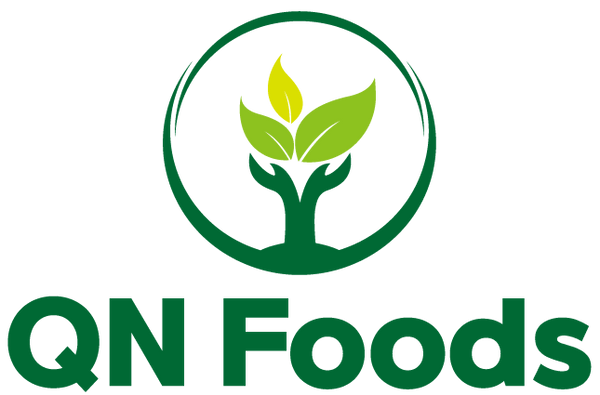In the dynamic world of dietary choices, individuals are increasingly exploring plant-powered lifestyles as they seek healthier and more sustainable options. The terms "vegan," "vegetarian," and "plant-based" often coexist in conversations about conscious eating, yet understanding the distinctions between these dietary choices is crucial. Join us on a journey through Green Cuisine 101 as we unravel the mysteries and nuances of vegan, vegetarian, and plant-based diets.
The Vegetarian Diet: Embracing Greens and Beyond
A cornerstone in the world of plant-powered eating, the vegetarian diet centers around abstaining from meat while allowing for the inclusion of dairy products and eggs. For those embarking on the path of becoming vegetarian, the transition often involves a gradual shift away from animal-based proteins towards a diet rich in fruits, vegetables, grains, and legumes.
One of the key attractions of the vegetarian diet is its flexibility. Individuals can choose from various subcategories such as lacto-vegetarian (includes dairy), ovo-vegetarian (includes eggs), or lacto-ovo-vegetarian (includes both dairy and eggs). This adaptability allows people to tailor their dietary choices to personal preferences and nutritional needs.
The Vegan Diet: A Compassionate Culinary Journey
Venturing further into the spectrum of plant-based living, the vegan diet is a lifestyle that abstains from all animal products, including not only meat but also dairy, eggs, and any other ingredients derived from animals. Eating vegan extends beyond dietary choices; it is a holistic approach that often includes ethical considerations about animal welfare and the environmental impact of food choices.
Embracing a vegan diet involves exploring alternative sources of protein, such as legumes, tofu, tempeh, and a variety of plant-based protein sources. Becoming vegan is not just about eliminating animal products; it's a conscious shift towards a compassionate and eco-friendly lifestyle.
The Plant-Based Diet: A Symphony of Whole Foods
A term gaining increasing popularity is the plant-based diet, which places a strong emphasis on whole, unprocessed plant foods. Unlike veganism, plant-based eating does not necessarily exclude animal products entirely but focuses on incorporating primarily plant-derived foods.
A plant-based diet encourages individuals to consume a diverse array of fruits, vegetables, nuts, seeds, legumes, and whole grains. It is less about restriction and more about celebrating the bountiful offerings of the plant kingdom. People often turn to a plant-based diet for its potential health benefits, including weight management, improved cardiovascular health, and increased energy levels.

Navigating the Differences: Vegan vs. Vegetarian vs. Plant-Based
1. Dietary Restrictions:
- Vegetarian Diet: Excludes meat but may include dairy and eggs.
- Vegan Diet: Excludes all animal products, including meat, dairy, and eggs.
- Plant-Based Diet: Emphasizes whole, plant-derived foods but may include small amounts of animal products.
2. Ethical Considerations:
- Vegetarian Diet: May or may not be linked to ethical concerns; often chosen for health reasons.
- Vegan Diet: Often driven by ethical considerations related to animal welfare and environmental impact.
- Plant-Based Diet: Primarily focuses on health benefits; ethical considerations vary.
3. Health Focus:
- Vegetarian Diet: May include processed vegetarian foods; health benefits vary.
- Vegan Diet: Tends to be plant-centric with a focus on whole foods; potential health benefits.
- Plant-Based Diet: Emphasizes whole, unprocessed plant foods; associated with various health benefits.

Becoming Vegetarian, Eating Vegan: Practical Tips for Transitioning
1. Take It Gradually:
- Start by incorporating more plant-based meals into your diet.
- Experiment with meat alternatives and explore new plant-based recipes.
2. Educate Yourself:
- Learn about plant-based protein sources to ensure a balanced diet.
- Stay informed about essential nutrients and consider supplements if necessary.
3. Explore Vegan Alternatives:
- Discover the world of dairy and egg alternatives for a seamless transition.
- Experiment with plant-based cooking and find vegan recipes that suit your taste.
4. Connect with the Community:
- Join local vegetarian or vegan groups to share experiences and tips.
- Attend plant-based cooking classes or workshops for inspiration.

Embracing Green Cuisine: A Personal Journey
Embarking on a plant-based journey is personal, extending beyond the kitchen. It involves conscious choices aligned with health, sustainability, or compassion for animals. No one-size-fits-all approach; find balance in a vegetarian, vegan, or plant-based path. So, dive into the world of green cuisine, explore new flavors, and savor the richness of plant-powered living. Your plate is your canvas—paint it green!
P.S. As you embark on your Green Cuisine 10 journey, elevate your culinary experience with QN™ Umami Mushroom Powder. Bursting with rich, savory flavors, it's the perfect companion to enhance your vegan, vegetarian, or plant-based dishes! 🌱✨


